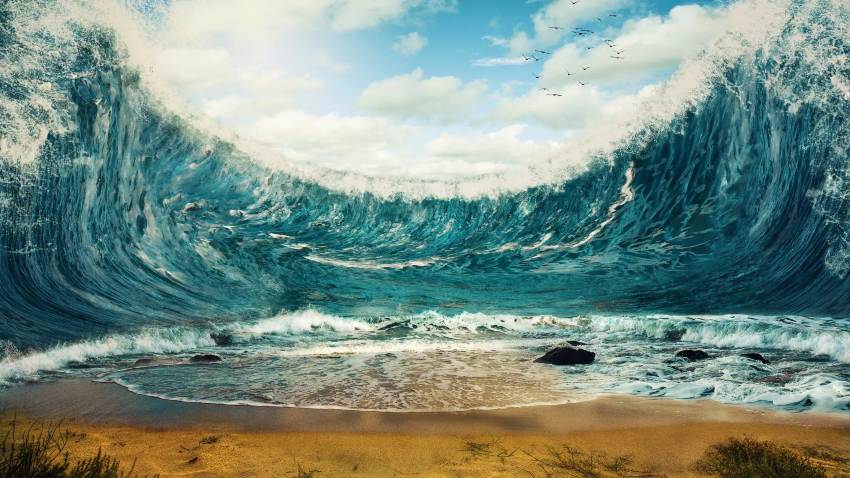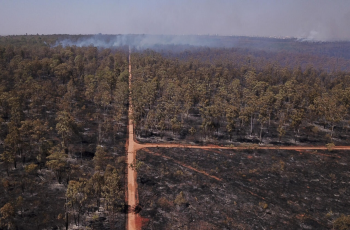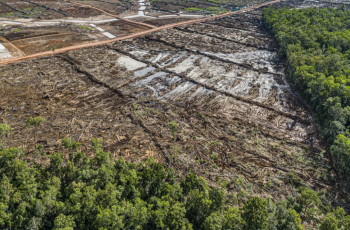Climate change may lead to massive tsunamis from Antarctica - study
A recent study found that massive tsunamis from Antarctica hit South America, New Zealand and Southeast Asia during two previous periods of global warming.

Photo: TYT
Climate change may lead to massive tsunamis from Antarctica, according to a study published last week in the peer-reviewed Nature Communications journal.
The study explained that the tsunamis would potentially be caused by submarine landslides - a phenomenon in which marine landslides push buildups of weak sediment into the open ocean, causing tsunamis.
The discovery was made after scientists drilled underwater in the ocean and found evidence that in previous periods of global warming three million and 15 million years ago, the same phenomenon sent massive tsunamis crashing into South America, New Zealand and Southeast Asia.
The danger may be reversible
The study notes that it may take time for these tsunamis to happen though. By the time the tsunamis hit in previous periods of global warming, the temperatures in Antarctica were hotter than today's average by three degrees Celsius. Sea levels were also higher and ice sheets were smaller. This could mean that if climate change can be reversed, we may be able to avoid the prophesied tsunamis.
"Submarine landslides are a major geohazard with the potential to trigger tsunamis that can lead to huge loss of life," said Dr. Jenny Gales from the University of Plymouth. "The landslides can also destroy infrastructure including subsea cables, meaning future such events would create a wide range of economic and social impacts."
Gales added that "thanks to exceptional preservation of the sediments beneath the seafloor, we have for the first time been able to show what caused these historical landslides in this region of Antarctica and also indicate the impact of such events in the future. Our findings highlight how we urgently need to enhance our understanding of how global climate change might influence the stability of these regions and potential for future tsunamis.”
"Our findings highlight how we urgently need to enhance our understanding of how global climate change might influence the stability of these regions and potential for future tsunamis.”
Dr. Jenny Gales
"Giant submarine landslides have occurred both on southern and northern high latitude continental margins, including the Antarctic and Norwegian continental margins," said Jan Sverre Laberg from the Arctic University of Norway. "More knowledge on these events in Antarctica will also be relevant for submarine geohazard evaluation offshore Norway."
"This study illustrates the importance of scientific ocean drilling and marine geology for understanding both past climate change and identifying regions susceptible to natural hazards to inform infrastructure decisions," said Dr. Amelia Shevenell from Geological Oceanography at the University of Florida College of Marine Science.
-

‘I’m scared for my entire generation’: Young Americans reflect on Trump's first 100 days
2025-04-26 -

Foreign students give up American dream over Trump crackdown
2025-04-25 -

Don't make 'disappointing' retreat on climate, COP30 CEO urges EU
2025-04-25 -

Kashmir: India-Pakistan tensions rise after attacks on tourists
2025-04-25 -

Countries could use forests to 'mask' needed emission cuts: report
2025-04-24 -

Kashmiri students say they have been threatened in India after attack
2025-04-24 -

Indonesia food plan risks 'world's largest' deforestation
2025-04-22 -

Trump tariffs torch chances of meeting with China's Xi
2025-04-22 -

In war-torn Sudan, a school offers a second chance at education
2025-03-02 -

Nepal community fights to save sacred forests from cable cars
2025-02-21
